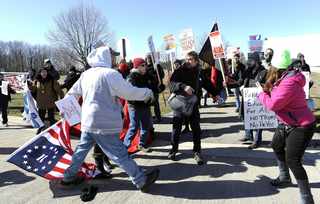Recent articles here and here by Victor Davis Hanson—my colleague at the Hoover Institution--paint a frightening picture of the United States as a country teetering on the edge of civil war. In addition to being an exceptional prose stylist, Hanson is an active combatant in today's political wars, so his impressions are understandable. As a data guy and a noncombatant, however, I am happy to report that the available data provide grounds for feeling much more sanguine about the state of our country. Although they are noisy and harmful to our politics, the kinds of people Hanson criticizes are many fewer in number than generally believed. They are what political scientists call the political class, a small minority of self-appointed activists, demonstrators, donors, partisan media commentators and office-seekers. Given that such people are the public face of politics, many Americans understandably take them as representative, but they are statistically abnormal—what we call “outliers.”
To understand contemporary American political life, you should begin with the realization that most of the people blabbering on cable television, venting on Facebook, and/or fulminating on Twitter are abnormal. They are abnormally interested and involved in politics, they tend to occupy the policy extremes, and they are abnormally opinionated (yes, many readers of Hanson's article and this one are probably abnormal). Consider some numbers. As of today, there are about 235 million eligible voters in the United States.
Read Full Article »



